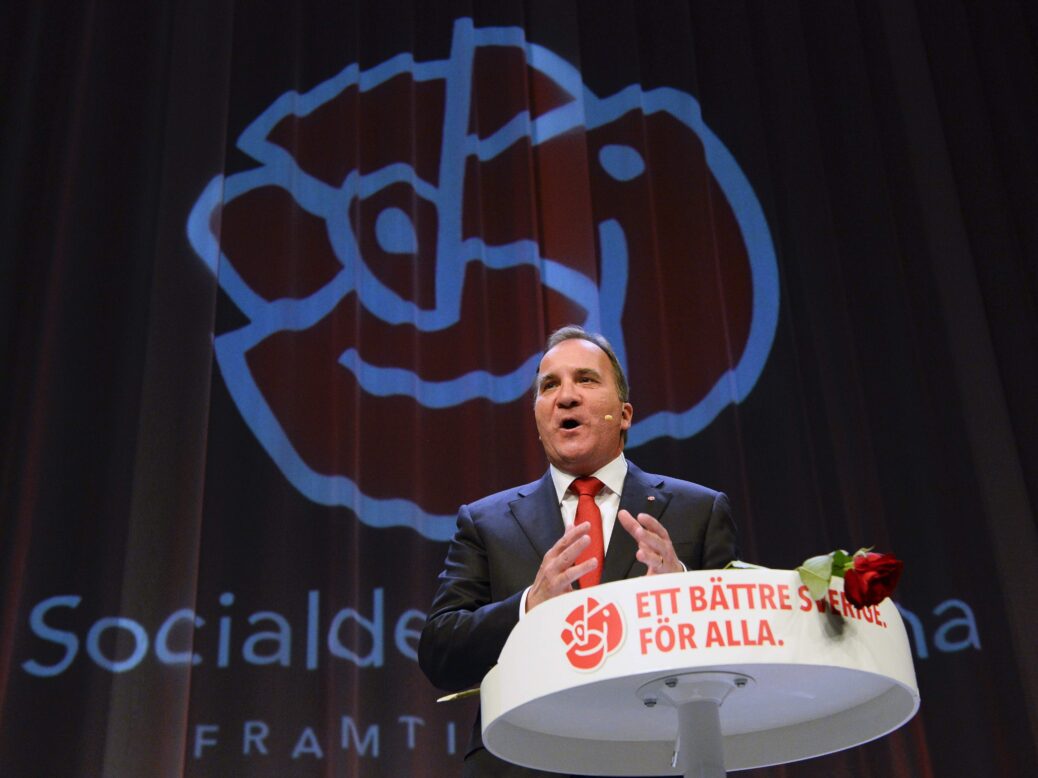
Perhaps no small country enjoys a more disproportionate influence at Westminster than Sweden. Its elections and politics are studied for lessons in enlightened social policy and as reliable indicators of Europe’s ideological trajectory.
Both David Cameron and Ed Miliband, in their own ways, are admirers of the country, which still ranks as one of the world’s most successful. Long before entering Downing Street, Cameron forged an alliance with its now former prime minister Fredrik Reinfeldt, who had similarly sought to reposition his right-wing party, the Moderates, as a centrist outfit. After 2010, the pair championed the causes of EU reform and free trade, while their respective finance ministers, George Osborne and Anders Borg, swapped tips on fiscal conservatism. Those on the free-market right of Cameron’s party praised Sweden’s experiment in for-profit free schools and privatised health care.
As a proud social democrat, Miliband continues to draw inspiration from Sweden’s expansive welfare state and its system of universal childcare. During a visit last year, he tweeted: “Just arriving at Swedish Parliament building, passing two Swedish fathers with pushchairs. Scandinavian scene.” When aides briefly lost him at the airport, they joked that he had defected.
Cameron and Miliband will have watched Sweden’s general election on 14 September with interest and some discomfort. After eight years in opposition – their longest ever spell out of government – the Social Democrats have returned to power. With the resignation of Reinfeldt as prime minister, Cameron has lost one of his closest EU allies, further shifting the odds against a successful renegotiation if he wins the next general election. The defeat of the Moderates, whose vote fell by 7 points to 23 per cent, marks a revolt against privatisation and tax cuts for the wealthy, policies also pursued in the UK by the coalition. That the right’s eviction from power followed a period of strong and sustained economic growth is another reminder that the Conservatives may yet endure their own voteless recovery.
For Miliband, however, the precedents are not all encouraging. Although the Social Democrats finished first, their vote share increased by just 1 point to 31 per cent and even with the support of their putative coalition partners, the Greens (7 per cent) and the Left Party (6 per cent), they fell short of an overall majority.
This anaemic performance was the result of the Feminist Initiative, which split the progressive vote but fell short of the 4 per cent required for parliamentary representation, and the grim rise of the Sweden Democrats: the far-right party finished third and more than doubled its support to 13 per cent after a campaign that preyed on anxieties over immigration.
The parallels with Britain are suggestive. Here, too, the centre left leads in the polls but not by the margin historically required for an overall majority. After uniting progressive opinion against the coalition earlier in the parliament, Labour has shed supporters to the Greens, who are enjoying their best ratings in 15 years. Meanwhile, it is the insurgent right, in the form of Ukip, that lies in third place.
The Social Democrat leader, Stefan Löfven, whom Miliband met last year, will now assume power as the head of a weak coalition that lacks the support required for radical change. To some in Labour, that looks worryingly like a prophecy of their fate after May 2015.
This piece appears in this week’s New Statesman.





